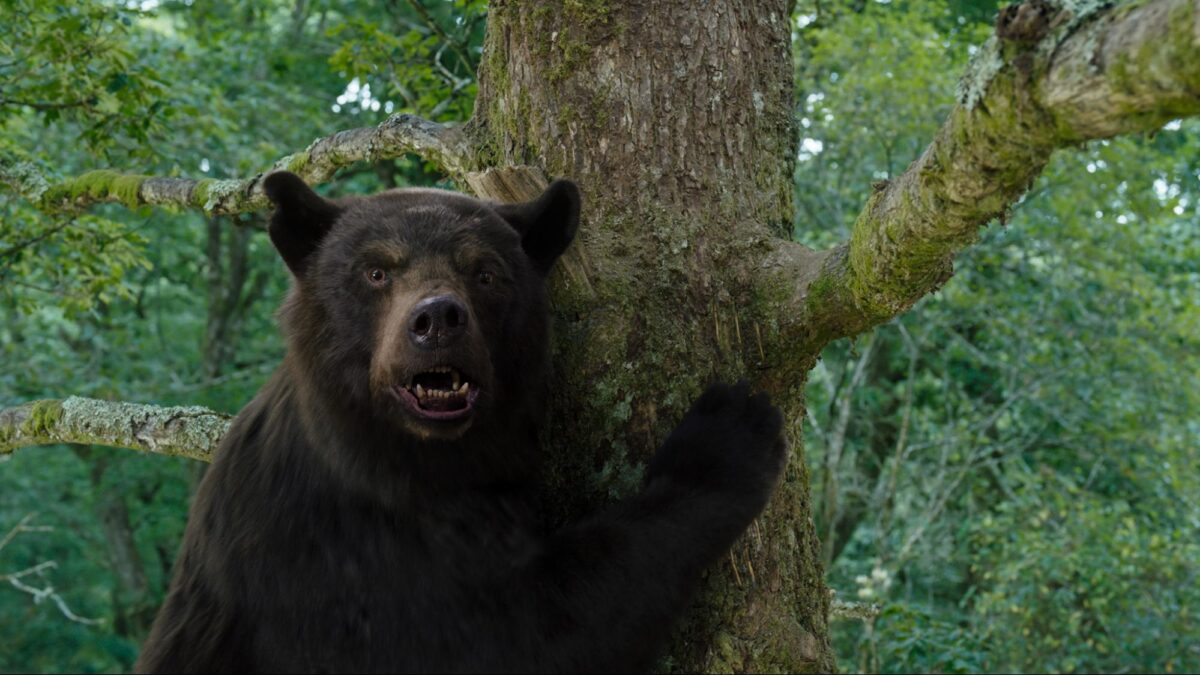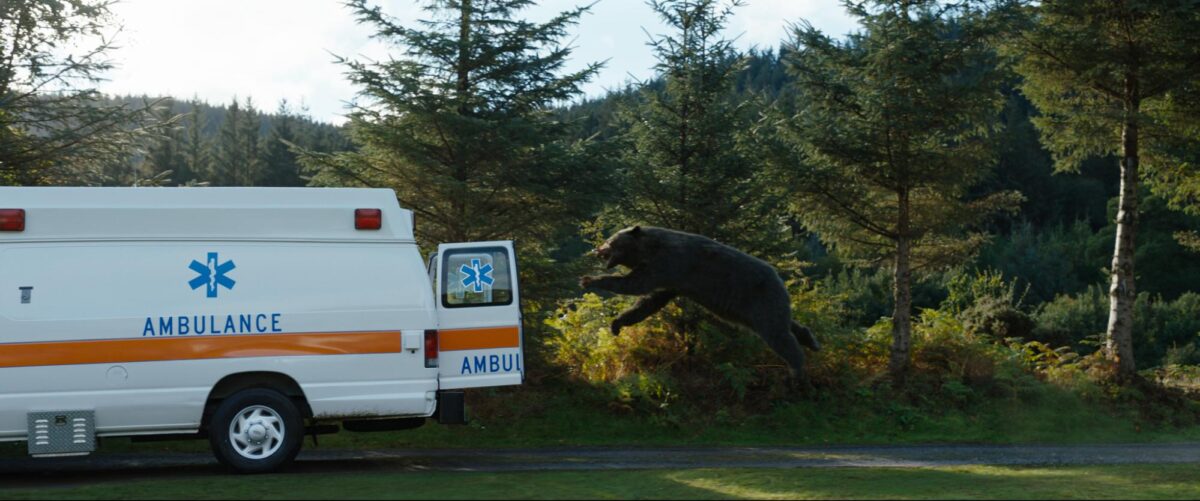The following article was produced in partnership with Universal Pictures’ Cocaine Bear.

The Australian Government has stunned the nation and the world by announcing plans to legalise the use of cocaine for bears. The decision has been met with a mix of shock, disbelief, and outright horror, with many Aussies wondering what kind of country they’re living in and whether one especially gruesome episode from history could be set to repeat itself…
The Albanese Government has defended the move primarily as a way to improve the quality of life for bears in captivity, many of whom suffer from anxiety and depression as a result of their confinement.
Under the new policy, bears will be able to use cocaine under the supervision of licensed veterinarians in an effort to alleviate their symptoms and make their lives a little more enjoyable.
However, the policy will also see cocaine legalised for bears living in the wild, which has raised a number of concerns among activists and members of the public alike. Many Aussies have been quick to clap back with concerns about the impact that the decision could have on daily life and the safety of their streets, especially after rumours have resurfaced of one terrifying series of real-life events:
In the mid-1980s, millions of dollars worth of cocaine inadvertently dropped from a smuggling plane into the forests of the Appalachian Mountains. The body of local smuggler Andrew C. Thornton – who is rumoured to have knocked himself unconscious whilst trying to skydive from the plane – was located, but his high-value payload was not, despite best efforts from local authorities and the local underworld.
After a black bear eventually stumbled across the lost drugs, it consumed an unverified but significant amount of the substance before turning violent. Described by witnesses as “deranged”, the bear turned on a number of passers-by, including a soon-to-be-married couple whose hiking trip came to a swift and gruesome end.

Though many put this particular bear’s less-than-ideal reaction to the drug down to a traumatic childhood and lack of early-life education, the families of the bereaved insist that repeat incidents are likely if the policy goes ahead.
In Melbourne, for example, there are fears that the legalisation of cocaine could lead to an increase in crime and drug abuse in the city’s already-riddled suburbs like Toorak and East Melbourne:
“This decision is a disaster for Melbourne,” said one local resident. “We already have enough problems with drug addiction in this city. The last thing we need is bears roaming the streets, high on cocaine and god knows what else”
In Sydney, there are similar concerns about the impact that legalisation could have on the city’s already-precarious reputation:
“Sydney is supposed to be a world-class city,” said one local business owner. “We can’t afford to have bears running up and down Oxford Street, hopped up on drugs. It’s fine for a couple of days during Mardi Gras but that’s a separate matter altogether. It’s a terrible look for the city and it’s going to hurt our tourism industry.”
Though the coked-up black bear’s reign of terror in 1980s America eventually came to an end, with some saying that St. Louis drug kingpin Syd White was so committed to reclaiming the lost shipment that he ventured into the wood to take on the bear himself, armed with weapons and his trusted fixer Daveed, the story remains a sticking point for many Australians when considering this new policy.

Despite these concerns, the government has pushed ahead with its plans. The decision has been hailed by animal rights activists, drug reform groups and former AFL star Wayne Carey as a progressive step forward, but others remain unconvinced. Many also worry that the move will encourage poaching and animal theft as people seek to exploit the animals for their newly revitalised bloodstreams and abilities.
We spoke to one ringmaster with a suspiciously in-depth knowledge of the topic who had this to say: “You’ve never seen one juggle so well”, adding that “if we fixed up that tiny bicycle, they could even break circus records for lap times around the big top.”
As the debate continues to rage, one thing is certain: the legalisation of cocaine for bears is set to be one of the most controversial decisions in Australian history. Only time will tell whether it will be remembered as a grizzly step towards animal welfare, or a polarising issue that will only have negative consequences.
Whether it turns out to be a bear necessity or a clawful mistake remains to be seen, but there’s one thing we can say for certain: if you happen to stumble across large amounts of cocaine when out for your next hike, or a bear with white powdery streaks running from its nose and mouth, we recommend you leave well alone.
Save the policy-making for the politicians, the rabid bear hunting for the park rangers, and the drug dealing for the less-than-capable skydivers.
Cocaine Bear is now available to watch at home now with early access – rent or buy on digital today.
